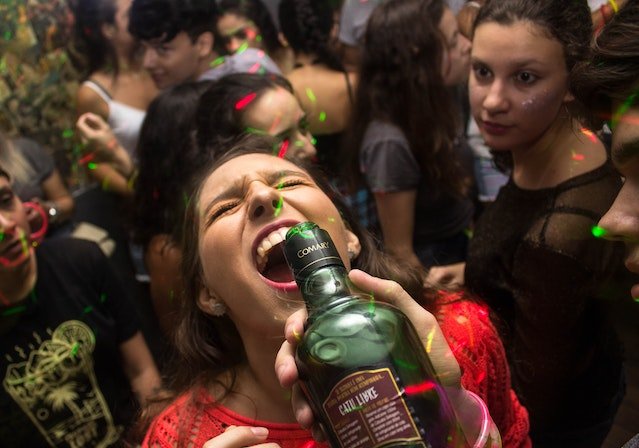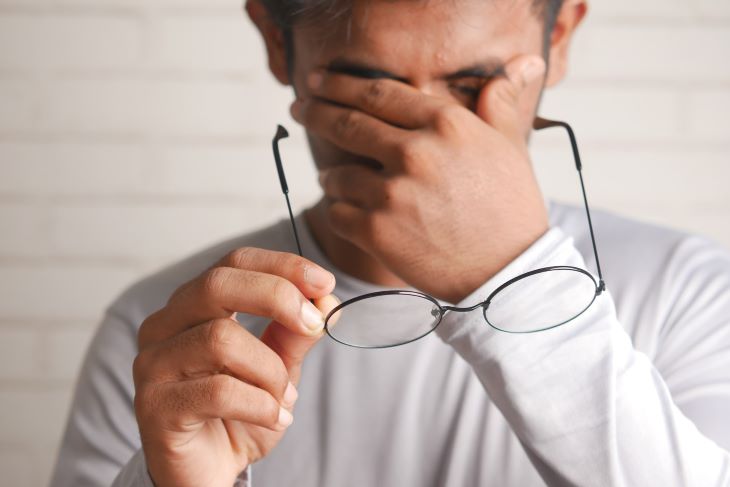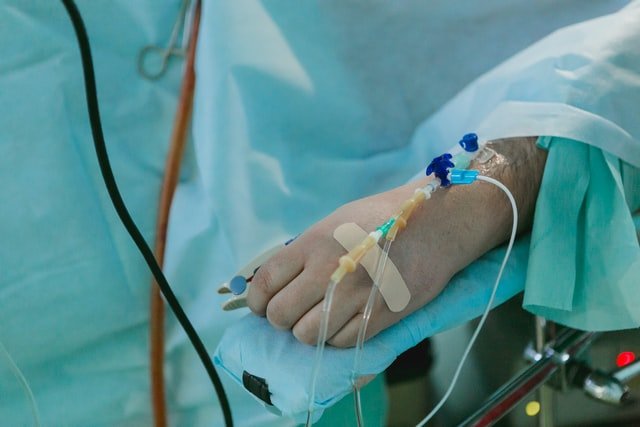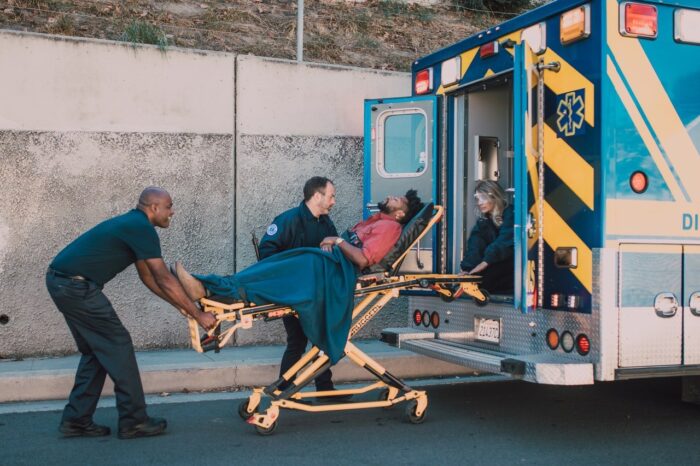Blackout Drunk: Signs, Causes & Dangers of Blackout Drinking
‘Blackouts’ are a slang term for memory gaps related to heavy drinking.
One paper called blackouts periods or amnesia for all or part of a drinking event.’
These blackouts can be quite disorienting, and at times, can be quite dangerous.
There are thought to be two main types of blackouts:
- Total amnesia: Total amnesia blackouts happen when you are unable to remember large chunks of time. This means that sometimes, people are unable to recall the events that happened over the spread of several hours.
- Fragmentary: Fragmentary blackouts are when you can recall moments throughout a span of time, but not necessarily everything that happened before, after, or in between. These memories can feel disjointed and often confused.
What Actually Happens In a Blackout?

Below, we explain what actually happens when you experience a blackout from drinking too much alcohol:
1. BACs And Blacking Out
Research into the phenomenon of blacking out has suggested that these periods usually occur when the blood alcohol concentration (or BACs) in the blood reaches a certain level.
Blood alcohol concentration measures the blood alcohol level (the amount of alcohol in the bloodstream).
‘A BAC of 0.10% means that an individual’s blood supply contains one part alcohol for every 1000 parts blood.’
Usually, blackouts happen when the blood alcohol level hits 0.16 and above.
In the UK, the legal driving limit is 0.08%, meaning that blackouts happen at over twice the driving limit.
This suggests that blackouts occur after very significant amounts of alcohol are consumed.
2. The Brain and Blacking Out
Blackouts are different from passing out.
When you pass out, you lose consciousness. When a blackout occurs, the individual is conscious – but they may be unable to remember the events of the drinking period.
Alcohol affects the way that the brain functions.
It can impact particular areas in your brain (such as the hippocampus) impair the ability to transfer short-term memories to long-term and alter the production and transmission of neurochemicals.

3. Different Kinds of Memory
Short-term memory is the memory in the moment – being aware of what is going on around us and being able to remember things that happened a few seconds, minutes, or hours ago.
Long-term memory is responsible for storing information so that we can remember a long history of events.
Research has shown that blackouts happen when short-term memories are not transferred to long-term memory.
This means that we are conscious and aware whilst drinking, but that the brain does not always store the memories that are made during that period.
4. The Hippocampus
Researchers have identified that the hippocampus in the brain is responsible for memories.
This suggests that drinking high volumes of alcohol impacts the way in which the hippocampus functions and is responsible for memory loss.
Who Do Alcohol Blackouts Happen To?

Alcohol-related blackouts could happen to anyone.
It is estimated that blackouts are experienced by around half of all individuals who drink alcohol.
However, there are some factors that may increase your risk of experiencing them.
The main factors include:
- How much alcohol has been consumed (heavy drinking)
- The alcohol concentration of the drinks being consumed
- The biological sex of the individual drinking
- A genetic predisposition
- Mixing drugs and alcohol
1. Heavy Drinking
The more you drink, the more the effects of alcohol, in general, are increased.
This means that binge drinking can increase the risk of experiencing blackouts.
Blackouts are more likely to happen when alcohol enters the bloodstream at a rapid rate, meaning the risk of blackouts is increased if you drink a large amount of alcohol in a very short time period.
2. Concentration
Whilst binge drinking is related to volume, the effects of alcohol can also be increased with a high concentration.
Concentration is how much of something exists within a substance.
Alcohol concentration measures how much alcohol there is in each kind of alcoholic drink.
This information is usually provided on bottles and cans as ABV.
ABV stands for Alcohol by Volume.
It is usually a percentage, and it shows how much of the drink is pure alcohol.
Drinks with a higher ABV have a higher concentration.
This means that consuming these kinds of drinks will likely get you drunk more quickly.
Drinking alcohol with a higher ABV also increases the risk of experiencing blackouts, as it means more alcohol is entering the body in a shorter space of time.

3. Gender
There has been research into how alcohol affects the biology of men and women differently.
This is thought to be linked to the fact that biologically female bodies metabolise (break down) alcohol in a different way than biologically male bodies.
Studies indicate that women are more likely to experience blackouts than men, however, men can (and do) experience blackouts too.
4. Genetics
Research into alcohol has suggested that the way that drinking affects our bodies can be linked to our genetics.
Genetics can mean that we are more or less likely to develop a dependence on alcohol or are more or less likely to experience blackout episodes.
This can be linked to the genes we inherit from our mothers and fathers.
5. Mixing Drugs and Alcohol
Different substances can interact with each other – drugs and alcohol are no different.
There are some drugs (both medical, and illegal) that can increase the impact that alcohol has on the body.
These can range from causing mild symptoms such as headaches, or canlead to toxic effects.
Some examples of prescription drugs that interact negatively with alcohol include:
- Cold or flu medicines
- Heart medications
- Anxiety medications
- Epilepsy medications
- Attention Deficit Hyperactivity Disorder (ADHD) medications
- Blood thinning and clotting medications
- Antidepressants
- Antibiotics
- Blood pressure medications
Some examples of illegal drugs that interact negatively with alcohol include:
How to Identify a Blackout Episode – What are the Signs?

Knowing how to identify a blackout episode will allow you to learn what to look for, and ultimately, how to keep yourself safe.
Learning the signs means you will be able to monitor your drinking and identify when a safe level of consumption can turn into dangerous drinking.
If you identify that you or a loved one are experiencing blackouts regularly, you can reach out to get support for how to manage your drinking behaviours.
Often, it is difficult to identify a blackout until after the fact, when we notice that our memories are hazy, blurred, or even lost.
But there are some signs related to heavy drinking that can be a good indicator of a blackout occurring.
Signs of Blackouts:
- Feeling dizzy or disoriented
- Fuzzy or distorted vision
- Spasms or involuntary movements in the muscles
- Slurring speech
- Headaches and pains
How Long Do Blackouts Last For?

The period of time that a blackout lasts can vary widely.
Amnesiac Blackouts
Amnesiac blackouts (also known as ‘en bloc’, meaning ‘all together’) can last for hours.
With this kind of blackout, it can feel as though time has been ‘lost’ and it is very difficult to restore the memories that have been lost.
Fragmentary Blackouts
Fragmentary blackouts (also known as a ‘grey-out’) are usually shorter and more frequent.
This means that memories can feel ‘patchy’, and you may remember some parts of the night/ time you were drinking, but not others.
Due to this, fragmentary blackouts are not full memory loss, but rather a partial loss of memory.
The Effects of Blackouts

Like with any kind of heavy alcohol consumption, drinking to the point of blackout can have significant effects on your mental and physical health.
Blackouts can impact your health, safety, and well-being both during and after the episode.
Short-Term Effects of Blackouts
- Alcohol poisoning
- Increased risk of accidents
- Increased risk to safety
- Increased risk of unsafe sex
- Alcohol-related (or exacerbated) anxiety
- Alcohol-related (or exacerbated) depression
- Reacting violently to yourself or others around you
Like with any kind of excessive drinking, there are health risks involved with drinking to the point of a blackout.
Long-Term Effects of Blackouts
- Cardiovascular disease (conditions of the heart)
- Hepatological disease (conditions of the liver
- Pancreatitis (inflammation of the pancreas
- Increased risk of stroke
- Increased risk of cancer
The Dangers of Blacking Out

Getting blackout drunk is associated with impaired cognitive functions.
This means that you may have difficulty performing daily actions and controlling motor skills, reasoning and impulse control.
Because of this, drinking to the point of a blackout comes with severe risks to your well-being.
Getting into Danger
With lowered inhibitions, there is an increased risk that you may come into danger.
For example, due to lower coordination, you may fall and injure yourself.
You could also struggle to read situations and identify when you may be in danger.
Unfortunately, there are people who will take advantage of these kinds of situations.
For this reason, you may find yourself at greater risk of being a victim of a violent crime such as theft, harassment, or sexual assault.
Due to the memory loss associated with blackouts, an intoxicated person may find it difficult to remember the events of a crime after excessive alcohol consumption.
Because of this, you may struggle to remember if you have been the victim of a crime or to give evidence to support this.
This means that it is very important to stay with friends or family whilst drinking to maintain your safety as best as you can.
Becoming a Risk to Others
Whilst excessive drinking can put you at risk of harm from others, drinking heavily can equally lead to you acting in irrational, dangerous, or violent ways.
The Institute of Alcohol Studies found that in 2017-2018, alcohol-related crimes made up just under a quarter (19%) of all violent crimes committed in England and Wales.
Emergency responders are also at risk from alcohol violence; with 75% of police officers and 50% of ambulance staff reporting having been injured by individuals who are drunk whilst at work.
This is a risk as it means that drinking is heavily associated with crime – whilst not everyone who drinks commits violent offences, heavy drinking has the ability to make you act in ways that you would not normally.
This can have serious consequences for you in terms of your relationships and professional and legal standing.
How to Prevent Blackouts

The best way to prevent blackouts is to pace yourself.
This means drinking smaller amounts of alcohol less often, rather than drinking large volumes quickly.
It can be helpful to consume alcoholic beverages that have a lower alcohol concentration.
You may wish to research how alcohol may interact with any medications or drugs you may be using to ensure you are drinking as safely as possible.
Research has also found that food can be used ‘as a measure to enable sustained drinking to avoid drinking in a way that results in short-term harms.’
Could I Have an Alcohol Addiction?

If you find that you are regularly waking up after a period of drinking with little to no memory of the night before, it is possible that you are experiencing frequent blackouts.
Frequent blackouts can be a sign of consistently heavy drinking, which can be a symptom of alcohol addiction or alcohol dependency.
Signs of Alcohol Addiction

Alcohol addiction is classed as a chronic disorder. This means that it is something that has the capacity to affect all areas of your life.
If you or a loved one are experiencing any of the following, there is a chance that you could be struggling with alcohol addiction:
- You are struggling with your physical or mental health for reasons related to alcohol use.
- You are struggling to maintain your relationships for reasons related to alcohol use.
- You are struggling to meet the demands of your job, are missing deadlines, may be consistently absent and find yourself in conflict with management for reasons related to alcohol use.
- You are struggling to meet the demands of your education, are missing deadlines, may be consistently absent and find yourself in conflict with education authorities for reasons related to alcohol use.
- You are struggling to maintain your household, eat well, and keep your environment and yourself clean and tidy for reasons related to alcohol use.
- You are struggling with your finances, missing bill payments, and borrowing money consistently for reasons related to alcohol use.
If any of these feels applicable to you, there is a high likelihood that you are currently in the throes of addiction.
Treating Alcohol Addiction

You do not need to face addiction alone.
There are many different modes and methods of support designed to alleviate the impact of excessive drinking and allow you to regain control of your well-being.
Some forms of addiction treatment for example can include:
- Acceptance and Commitment Therapy
- Brief Interventions
- Co-dependency Treatment
- Cognitive Behavioural Therapy (CBT)
- Dialectical Behavioural Therapy (DBT)
- Family Therapy
- Group Therapy
- Holistic Therapy (Art Therapy, Music Therapy, Meditation, Mindfulness, Yoga, etc).
- Individual Therapy
- Motivational Enhancement
- Motivational Interviewing
- Psychotherapy
- Twelve-Step Facilitation Treatment (TSF)
- Contingency Management
- Self-Help Groups
Find Support Now

Sometimes it’s tough to know where to turn.
By reaching out to build a support network around you, you can begin to heal with guided professional treatment from specialist addiction support providers.
Every individual struggling with an addiction deserves support to help get them through.
If you are ready to access support for alcohol dependency or blackout drinking, you can contact Rehab Recovery at 0800 088 66 86 or use the online form to request a call back from a member of our specialist team about accessing support at a local rehab centre.
If you are uncomfortable with speaking over the phone, you can use our free chat service at any time of day, to speak with a professional virtually.
You can begin your journey to regaining control by speaking with a team of medical professionals all trained to know how best to help you.




